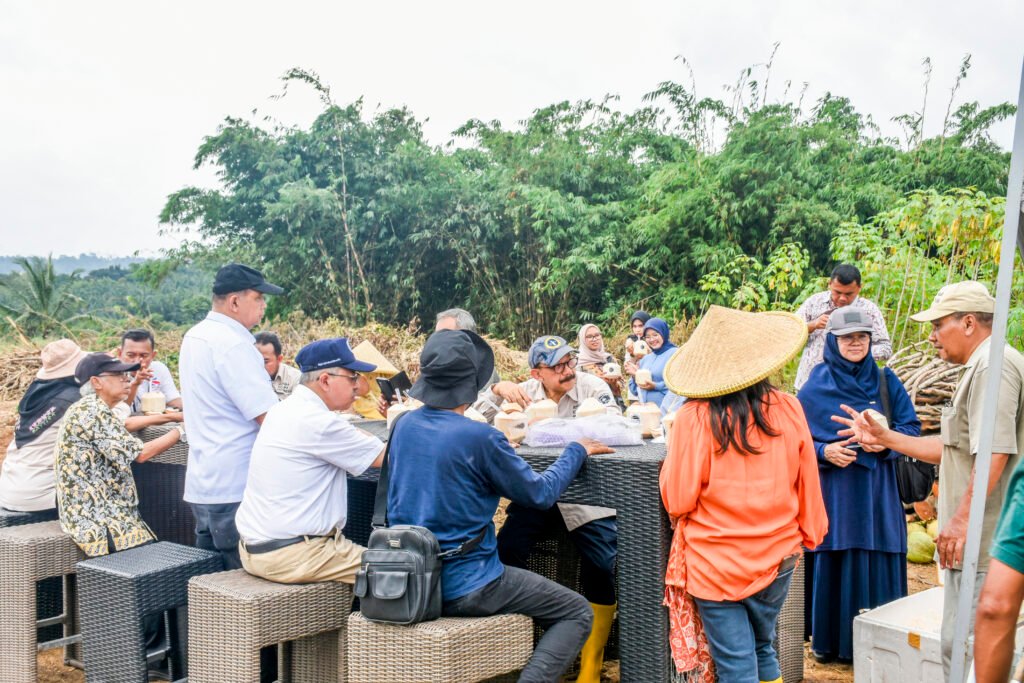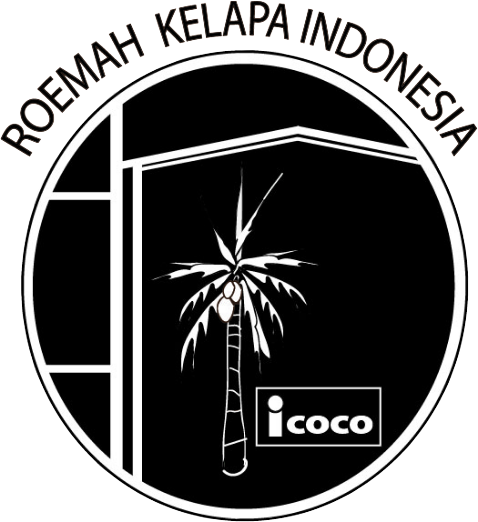
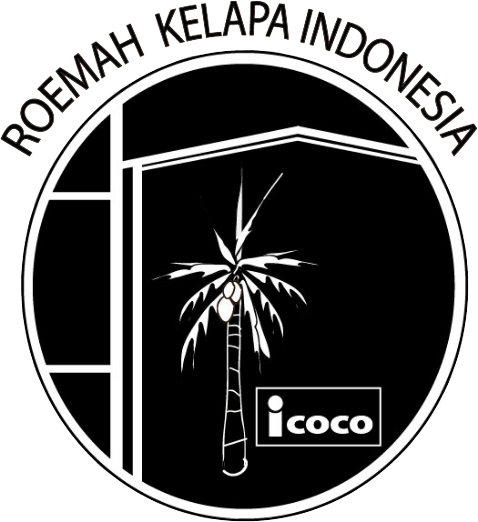
Roemah Kelapa Indonesia Group



OUR PROGRAM PRIORITIES
STOP BURNING COCONUT HUSK
OUR PROGRAM PRIORITIES
STOP BURNING COCONUT HUSK
TURN THE WASTE INTO
PRODUCTS
ENERGY
TURN THE WASTE INTO
PRODUCTS
ENERGY

COCONUT HUSK DEFITELY IS NOT A WASTE
Don’t Burn Coconut Husks – Turn Them into Value
Coconut husks aren’t waste — they’re a powerful resource. Instead of polluting the air through burning, husks can be transformed into green building materials like bio-insulators and roof tiles, or converted into renewable energy such as biomass fuel and biochar. These innovations create jobs, reduce emissions, and give our planet cleaner air. Together, we can turn waste into wealth and build a healthier, more sustainable future.
Stop Burning Coconut Husks – Act Now for Inhil, Riau, and Beyond
Indonesia produces 13–15 billion coconuts every year, yet less than 5% of the husks are put to productive use. The rest are often left to rot or burned — a waste that costs the nation at least USD 320 million annually, according to Bappenas. In Indragiri Hilir (Inhil), Riau Province, and other coconut-producing regions, husk burning is destroying fragile peatland ecosystems, releasing dangerous emissions, and accelerating environmental collapse.
This is not just an economic loss — it’s an urgent environmental emergency. Every husk burned is clean air lost, biodiversity destroyed, and climate stability threatened. Join us in Roemah Kelapa Indonesia, we must hand in hand and act now to stop the burn, harness the value of coconut husks, and protect both livelihoods and the planet.
COCONUT HUSK DEFITELY IS NOT A WASTE
Don’t Burn Coconut Husks – Turn Them into Value
Coconut husks aren’t waste — they’re a powerful resource. Instead of polluting the air through burning, husks can be transformed into green building materials like bio-insulators and roof tiles, or converted into renewable energy such as biomass fuel and biochar. These innovations create jobs, reduce emissions, and give our planet cleaner air. Together, we can turn waste into wealth and build a healthier, more sustainable future.
Stop Burning Coconut Husks – Act Now for Inhil, Riau, and Beyond
Indonesia produces 13–15 billion coconuts every year, yet less than 5% of the husks are put to productive use. The rest are often left to rot or burned — a waste that costs the nation at least USD 320 million annually, according to Bappenas. In Indragiri Hilir (Inhil), Riau Province, and other coconut-producing regions, husk burning is destroying fragile peatland ecosystems, releasing dangerous emissions, and accelerating environmental collapse.
This is not just an economic loss — it’s an urgent environmental emergency. Every husk burned is clean air lost, biodiversity destroyed, and climate stability threatened. Join us in Roemah Kelapa Indonesia, we must hand in hand and act now to stop the burn, harness the value of coconut husks, and protect both livelihoods and the planet.
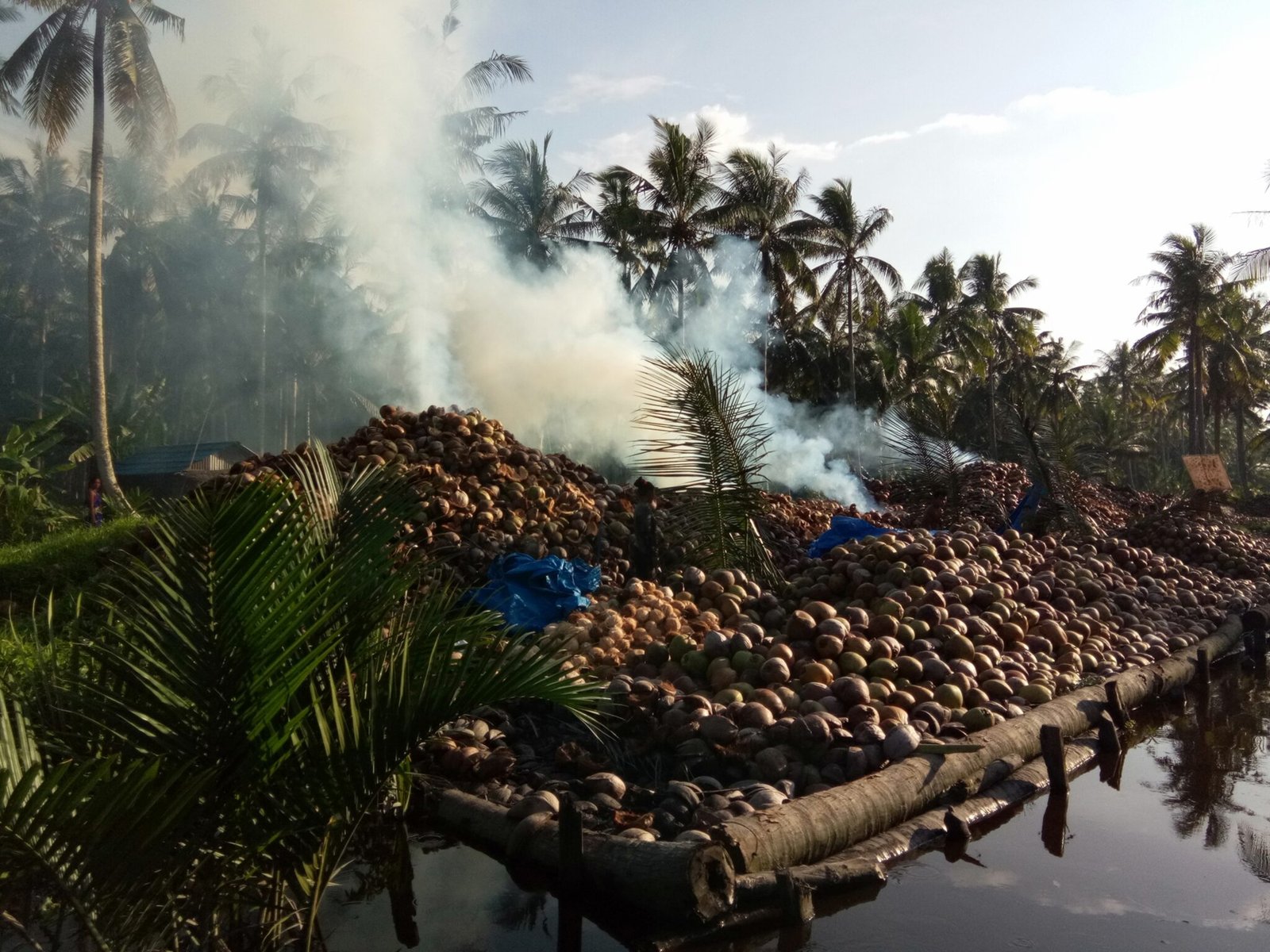
COCONUT HUSK DEFITELY IS NOT A WASTE
Don’t Burn Coconut Husks – Turn Them into Value
Coconut husks aren’t waste — they’re a powerful resource. Instead of polluting the air through burning, husks can be transformed into green building materials like bio-insulators and roof tiles, or converted into renewable energy such as biomass fuel and biochar. These innovations create jobs, reduce emissions, and give our planet cleaner air. Together, we can turn waste into wealth and build a healthier, more sustainable future.
Stop Burning Coconut Husks – Act Now for Inhil, Riau, and Beyond
Indonesia produces 13–15 billion coconuts every year, yet less than 5% of the husks are put to productive use. The rest are often left to rot or burned — a waste that costs the nation at least USD 320 million annually, according to Bappenas. In Indragiri Hilir (Inhil), Riau Province, and other coconut-producing regions, husk burning is destroying fragile peatland ecosystems, releasing dangerous emissions, and accelerating environmental collapse.
This is not just an economic loss — it’s an urgent environmental emergency. Every husk burned is clean air lost, biodiversity destroyed, and climate stability threatened. Join us in Roemah Kelapa Indonesia, we must hand in hand and act now to stop the burn, harness the value of coconut husks, and protect both livelihoods and the planet.

ROEKI REPLANTING PROGRAM CONCEPT
From CPCL to Productive, Income-Based Coconut Plantations
Roemah Kelapa Indonesia (RoeKI) positions replanting not merely as a tree replacement exercise, but as a strategic, income-driven transformation program to secure national food security, strengthen farmer livelihoods, and expand Indonesia’s role in the global coconut market.
1. CPCL as the Strategic Foundation
The replanting program begins with a CPCL (Candidate Farmers and Prospective Land) process to ensure targeted, efficient, and impactful interventions. This includes:
Farmer Profiling: Identifying committed farmers or farmer groups, cooperatives, and community enterprises capable of adopting improved cultivation practices.
Land Suitability Assessment: Evaluating soil health, climate compatibility, and existing land use to ensure long-term plantation viability.
Socio-Economic Mapping: Understanding household income needs, market access, and potential integration with other crops for diversified revenue streams.
2. Planting Material Supply – Conventional & Advanced
A key success factor in replanting is the availability and quality of planting material. RoeKI ensures multiple sourcing strategies:
Conventional Seedlings: High-yield hybrid and local elite varieties produced through certified nurseries, ensuring genetic purity and adaptability.
Embryo Tissue Culture: In partnership with IPB University and aligned with the outcomes of the joint RoeKI–Ministry of Foreign Affairs (MoFA)–IPB Coconut Tissue Culture Seminar, we promote large-scale production of uniform, disease-free seedlings capable of rapid establishment and early fruiting.
Decentralized Distribution: Regional nursery hubs to reduce logistics time, maintain seedling quality, and empower local communities in seed production.
3. Income-Based Plantation Development
Unlike traditional replanting programs focused solely on replacing trees, RoeKI integrates Income-Based Plantation Models:
Polyculture Systems: Intercropping coconut with short-term cash crops (e.g., cacao, pineapple, banana, legumes) to ensure income continuity during immature years.
Market Linkage Guarantees: Partnerships with processors and exporters to secure offtake agreements for both coconut and intercrop products.
Digital Plantation Management: Real-time tracking of planting, maintenance, and yield projections to optimize productivity and financial returns.
4. Parameters for Success
RoeKI applies measurable indicators to evaluate replanting outcomes:
Seedling Survival Rate – Minimum 80% survival within the first year after planting.
Early Yield Onset – Hybrid and tissue-culture-derived palms fruiting within 3–4 years.
Yield Performance – Minimum 6,000 nuts/ha/year from year five onwards.
Farmer Income Growth – At least 30% income increase within three years through intercrops and value chain access.
Sustainability Compliance – Adoption of GAP, integrated pest management, and zero-deforestation policies.
5. Linking to National Food Security & Global Trade
The RoeKI–Foreign Ministry of RI–IPB Tissue Culture Seminar underlined that modern coconut replanting is directly tied to Indonesia’s food sovereignty and export potential:
Food Security: By securing a stable domestic coconut supply, Indonesia reduces dependency on imported vegetable oils and ensures affordable, nutritious food sources for the population.
Export Expansion: High-yield plantations feed midstream and downstream industries, enabling Indonesia to export value-added products—ranging from VCO and coconut water to activated carbon and coir-based materials—to markets in Asia, the Middle East, Europe, and North America.
Diplomatic Leverage: Replanting programs, paired with modern biotechnology like tissue culture, strengthen Indonesia’s position in agricultural diplomacy, allowing coconut to be both an economic commodity and a tool for global cooperation.
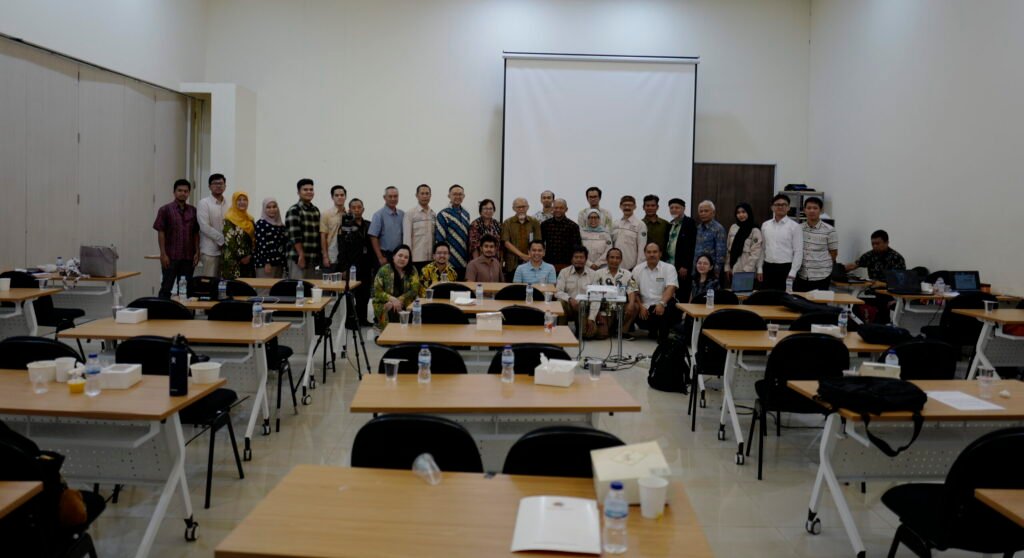
MODEL PLANTATIONS - CULTIVATED BY GAP

ROEKI REPLANTING PROGRAM CONCEPT
From CPCL to Productive, Income-Based Coconut Plantations
Roemah Kelapa Indonesia (RoeKI) positions replanting not merely as a tree replacement exercise, but as a strategic, income-driven transformation program to secure national food security, strengthen farmer livelihoods, and expand Indonesia’s role in the global coconut market.
1. CPCL as the Strategic Foundation
The replanting program begins with a CPCL (Candidate Farmers and Prospective Land) process to ensure targeted, efficient, and impactful interventions. This includes:
Farmer Profiling: Identifying committed farmers or farmer groups, cooperatives, and community enterprises capable of adopting improved cultivation practices.
Land Suitability Assessment: Evaluating soil health, climate compatibility, and existing land use to ensure long-term plantation viability.
Socio-Economic Mapping: Understanding household income needs, market access, and potential integration with other crops for diversified revenue streams.
2. Planting Material Supply – Conventional & Advanced
A key success factor in replanting is the availability and quality of planting material. RoeKI ensures multiple sourcing strategies:
Conventional Seedlings: High-yield hybrid and local elite varieties produced through certified nurseries, ensuring genetic purity and adaptability.
Embryo Tissue Culture: In partnership with IPB University and aligned with the outcomes of the joint RoeKI–Ministry of Foreign Affairs (MoFA)–IPB Coconut Tissue Culture Seminar, we promote large-scale production of uniform, disease-free seedlings capable of rapid establishment and early fruiting.
Decentralized Distribution: Regional nursery hubs to reduce logistics time, maintain seedling quality, and empower local communities in seed production.
3. Income-Based Plantation Development
Unlike traditional replanting programs focused solely on replacing trees, RoeKI integrates Income-Based Plantation Models:
Polyculture Systems: Intercropping coconut with short-term cash crops (e.g., cacao, pineapple, banana, legumes) to ensure income continuity during immature years.
Market Linkage Guarantees: Partnerships with processors and exporters to secure offtake agreements for both coconut and intercrop products.
Digital Plantation Management: Real-time tracking of planting, maintenance, and yield projections to optimize productivity and financial returns.
4. Parameters for Success
RoeKI applies measurable indicators to evaluate replanting outcomes:
Seedling Survival Rate – Minimum 80% survival within the first year after planting.
Early Yield Onset – Hybrid and tissue-culture-derived palms fruiting within 3–4 years.
Yield Performance – Minimum 6,000 nuts/ha/year from year five onwards.
Farmer Income Growth – At least 30% income increase within three years through intercrops and value chain access.
Sustainability Compliance – Adoption of GAP, integrated pest management, and zero-deforestation policies.
5. Linking to National Food Security & Global Trade
The RoeKI–Foreign Ministry of RI–IPB Tissue Culture Seminar underlined that modern coconut replanting is directly tied to Indonesia’s food sovereignty and export potential:
Food Security: By securing a stable domestic coconut supply, Indonesia reduces dependency on imported vegetable oils and ensures affordable, nutritious food sources for the population.
Export Expansion: High-yield plantations feed midstream and downstream industries, enabling Indonesia to export value-added products—ranging from VCO and coconut water to activated carbon and coir-based materials—to markets in Asia, the Middle East, Europe, and North America.
Diplomatic Leverage: Replanting programs, paired with modern biotechnology like tissue culture, strengthen Indonesia’s position in agricultural diplomacy, allowing coconut to be both an economic commodity and a tool for global cooperation.

MODEL PLANTATIONS - CULTIVATED BY GAP
SHAPING INDONESIA’S COCONUT FUTURE
RoeKI and IPB Pioneer Model Plantation with Five Premier Varieties
Integrated Coconut Demonstration Farm with Polyculture and GAP Implementation
Indonesia remains one of the world’s top coconut producers, yet smallholder productivity remains low due to aging trees, monoculture systems, and limited adoption of modern farming practices. To address this, we propose the development of an Integrated Coconut Demonstration Farm as a replicable model showcasing sustainable practices, increased productivity, and farmer empowerment.
This project will establish a 10-hectare demonstration plot designed with a polyculture farming system and full implementation of Good Agricultural Practices (GAP). As part of our commitment to strengthening Indonesia’s coconut industry, Roemah Kelapa Indonesia (RoeKI) has initiated the cultivation of superior coconut varieties that respond to both domestic and international market demands.
We have already planted:
- Genjah Pandan Wangi (Aromatic Young Coconut) – a premium variety widely appreciated for its natural pandan-like fragrance, tender meat, and refreshing water. This variety has strong commercial value in the fresh coconut beverage and hospitality market.
Genjah Entog Kebumen – a high-yielding dwarf variety originating from Kebumen, Central Java, known for its productivity and adaptability, providing farmers with faster returns on investment.
In the next phase, we are preparing to cultivate additional high-value varieties:
Sap-Producing Tall Coconut (Kelapa Dalam Penghasil Nira) – cultivated for its high sap yield, suitable for processing into coconut sugar, bioethanol, and other sap-derived products that have growing demand in both food and energy sectors.
Kopyor Coconut – a naturally occurring mutant variety with unique soft, granular endosperm. Highly prized in the specialty food market, kopyor offers strong economic potential as a niche premium product.
CM Herbal Coconut – a modern herbal Cungap Merah variety developed for its functional and medicinal properties, responding to the rising global trend in nutraceuticals and health-based coconut derivatives.
Through these strategic varietal selections, RoeKI is not only enhancing productivity and farmer prosperity, but also building a diverse product portfolio that spans fresh consumption, specialty food, health, and renewable energy markets.
The farm at Jonggol Innovation Valley will serve as a reference site for training, innovation, and agroecological transition.
Polyculture System Design
The farm will integrate coconut with high-value intercrops to maximize land use and income:
Main crop: High-yield tall, hybrid or dwarf coconut varieties
Intercrops: Banana, rice, pineapple, ginger, turmeric, and seasonal vegetables
Cover crops: Legumes (e.g., Mucuna or Calopogonium) for soil improvement
Border crops: Areca nut (betel nut) Gliricidia or vetiver for erosion control and biodiversity
This system promotes ecological balance, improves soil health, and ensures diversified farmer revenue.
GAP Implementation
The project will follow GAP standards focused on:
Land & planting management: Use of certified seedlings, proper spacing, and organic soil amendments
Water & nutrient management: Efficient irrigation and fertilization based on soil analysis
Pest & disease control: Use of biological controls and integrated pest management (IPM)
Harvest & postharvest: Quality-based harvesting, hygienic sorting, and product traceability
Worker safety & environment: Protective gear, training, and waste management practices
GAP ensures food safety, environmental sustainability, and improves market access, including for export.
Governance and Impact
The farm will be managed collaboratively by a local farmer cooperative, supported by technical experts and private sector partners. The model will act as a live classroom for local farmers, youth, and agricultural stakeholders.
Expected Outcomes
Demonstration of a productive, replicable polyculture coconut system
Increased yields and income diversification for farmers
Knowledge transfer to surrounding farming communities
Strengthened market linkages and sustainability practices
This initiative supports Indonesia’s goal of revitalizing its coconut industry through innovation, inclusivity, and climate-resilient agriculture.
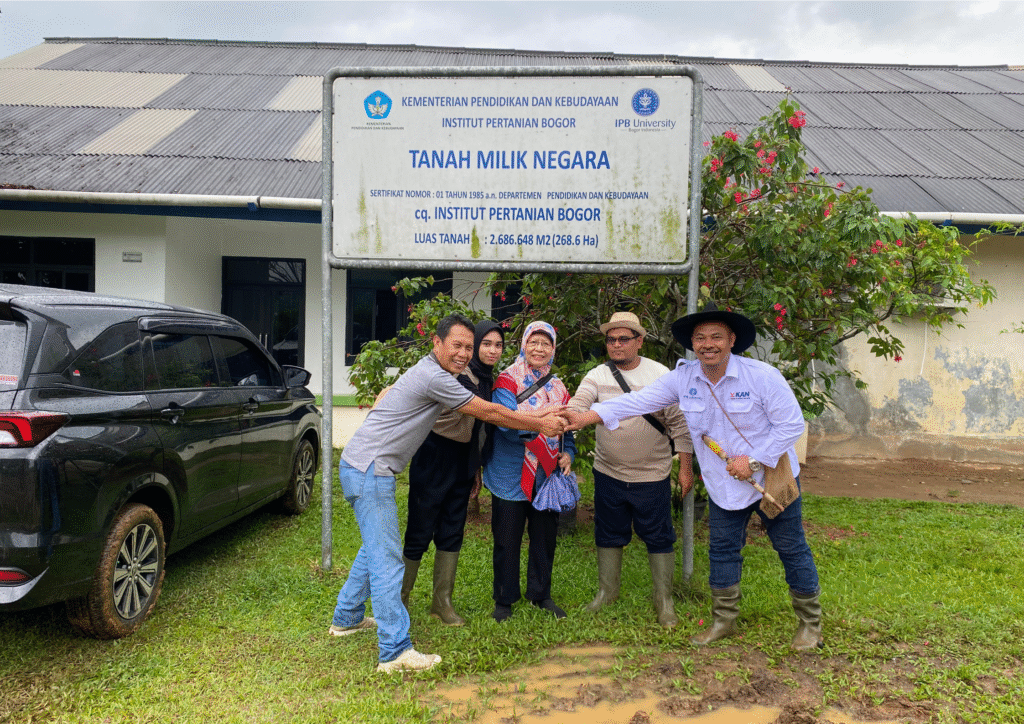
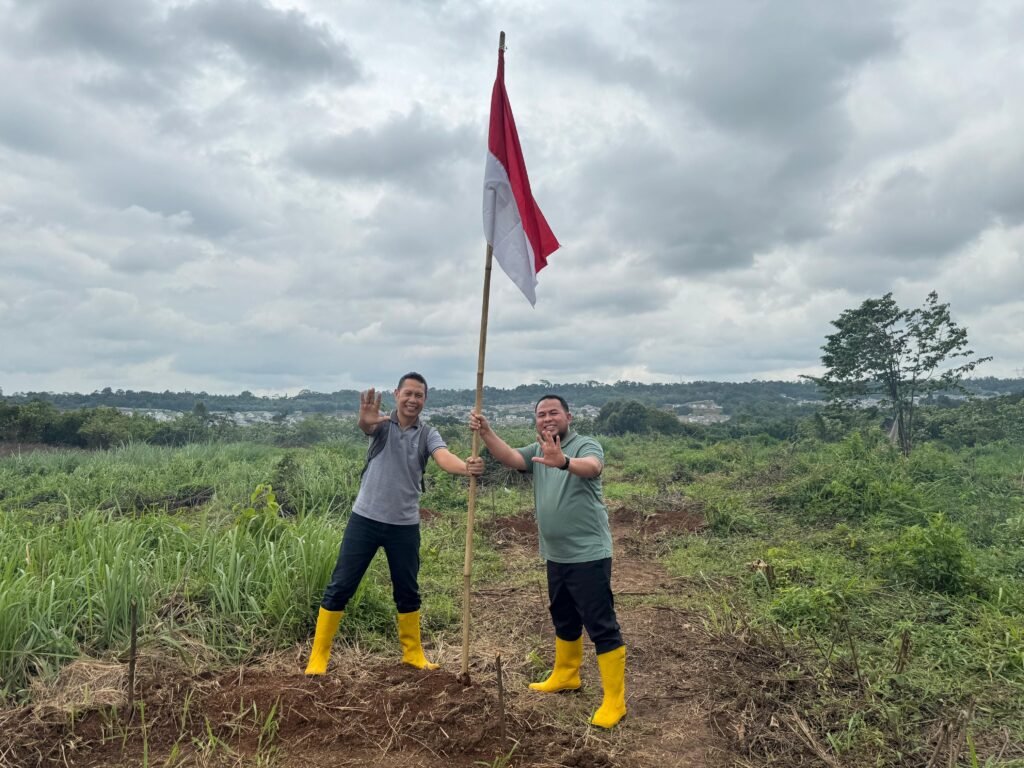
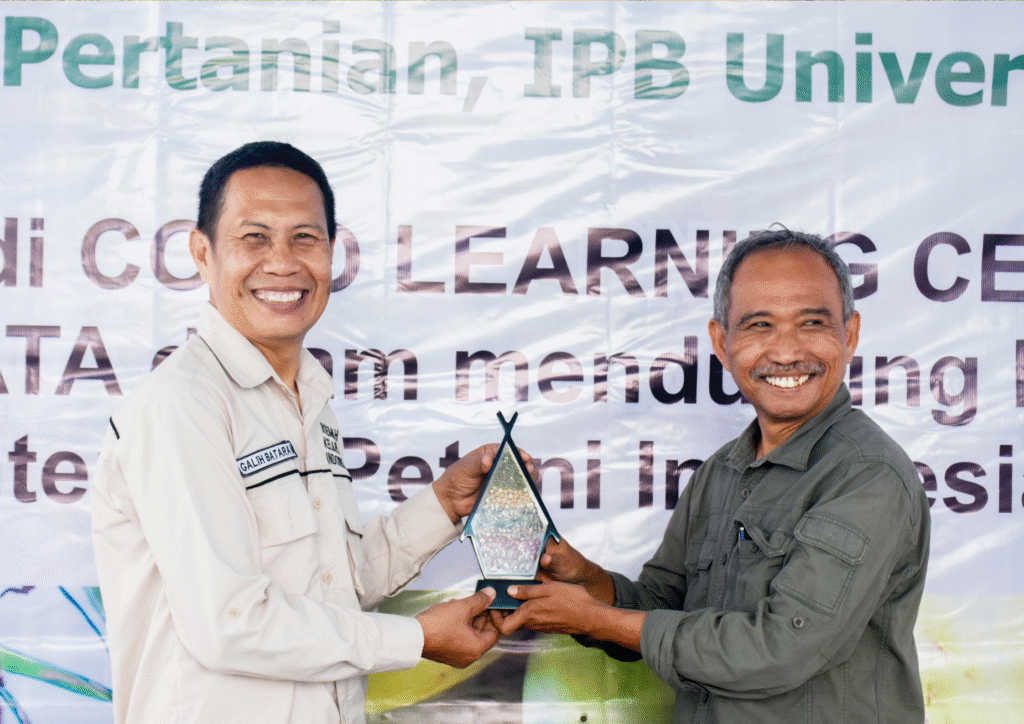

SHAPING INDONESIA’S COCONUT FUTURE
RoeKI and IPB Pioneer Model Plantation with Five Premier Varieties
Integrated Coconut Demonstration Farm with Polyculture and GAP Implementation
Indonesia remains one of the world’s top coconut producers, yet smallholder productivity remains low due to aging trees, monoculture systems, and limited adoption of modern farming practices. To address this, we propose the development of an Integrated Coconut Demonstration Farm as a replicable model showcasing sustainable practices, increased productivity, and farmer empowerment.
This project will establish a 10-hectare demonstration plot designed with a polyculture farming system and full implementation of Good Agricultural Practices (GAP). As part of our commitment to strengthening Indonesia’s coconut industry, Roemah Kelapa Indonesia (RoeKI) has initiated the cultivation of superior coconut varieties that respond to both domestic and international market demands.
We have already planted:
- Genjah Pandan Wangi (Aromatic Young Coconut) – a premium variety widely appreciated for its natural pandan-like fragrance, tender meat, and refreshing water. This variety has strong commercial value in the fresh coconut beverage and hospitality market.
Genjah Entog Kebumen – a high-yielding dwarf variety originating from Kebumen, Central Java, known for its productivity and adaptability, providing farmers with faster returns on investment.
In the next phase, we are preparing to cultivate additional high-value varieties:
Sap-Producing Tall Coconut (Kelapa Dalam Penghasil Nira) – cultivated for its high sap yield, suitable for processing into coconut sugar, bioethanol, and other sap-derived products that have growing demand in both food and energy sectors.
Kopyor Coconut – a naturally occurring mutant variety with unique soft, granular endosperm. Highly prized in the specialty food market, kopyor offers strong economic potential as a niche premium product.
CM Herbal Coconut – a modern herbal Cungap Merah variety developed for its functional and medicinal properties, responding to the rising global trend in nutraceuticals and health-based coconut derivatives.
Through these strategic varietal selections, RoeKI is not only enhancing productivity and farmer prosperity, but also building a diverse product portfolio that spans fresh consumption, specialty food, health, and renewable energy markets.
The farm at Jonggol Innovation Valley will serve as a reference site for training, innovation, and agroecological transition.
Polyculture System Design
The farm will integrate coconut with high-value intercrops to maximize land use and income:
Main crop: High-yield tall, hybrid or dwarf coconut varieties
Intercrops: Banana, rice, pineapple, ginger, turmeric, and seasonal vegetables
Cover crops: Legumes (e.g., Mucuna or Calopogonium) for soil improvement
Border crops: Areca nut (betel nut) Gliricidia or vetiver for erosion control and biodiversity
This system promotes ecological balance, improves soil health, and ensures diversified farmer revenue.
GAP Implementation
The project will follow GAP standards focused on:
Land & planting management: Use of certified seedlings, proper spacing, and organic soil amendments
Water & nutrient management: Efficient irrigation and fertilization based on soil analysis
Pest & disease control: Use of biological controls and integrated pest management (IPM)
Harvest & postharvest: Quality-based harvesting, hygienic sorting, and product traceability
Worker safety & environment: Protective gear, training, and waste management practices
GAP ensures food safety, environmental sustainability, and improves market access, including for export.
Governance and Impact
The farm will be managed collaboratively by a local farmer cooperative, supported by technical experts and private sector partners. The model will act as a live classroom for local farmers, youth, and agricultural stakeholders.
Expected Outcomes
Demonstration of a productive, replicable polyculture coconut system
Increased yields and income diversification for farmers
Knowledge transfer to surrounding farming communities
Strengthened market linkages and sustainability practices
This initiative supports Indonesia’s goal of revitalizing its coconut industry through innovation, inclusivity, and climate-resilient agriculture.





